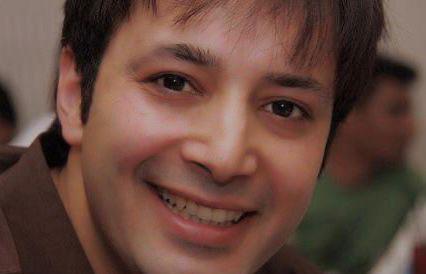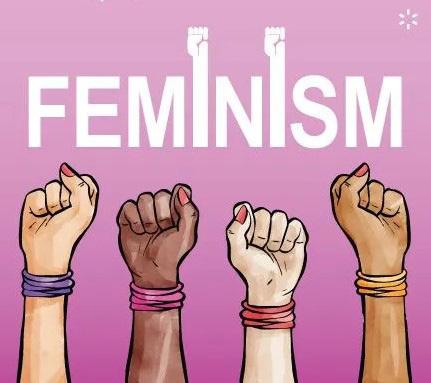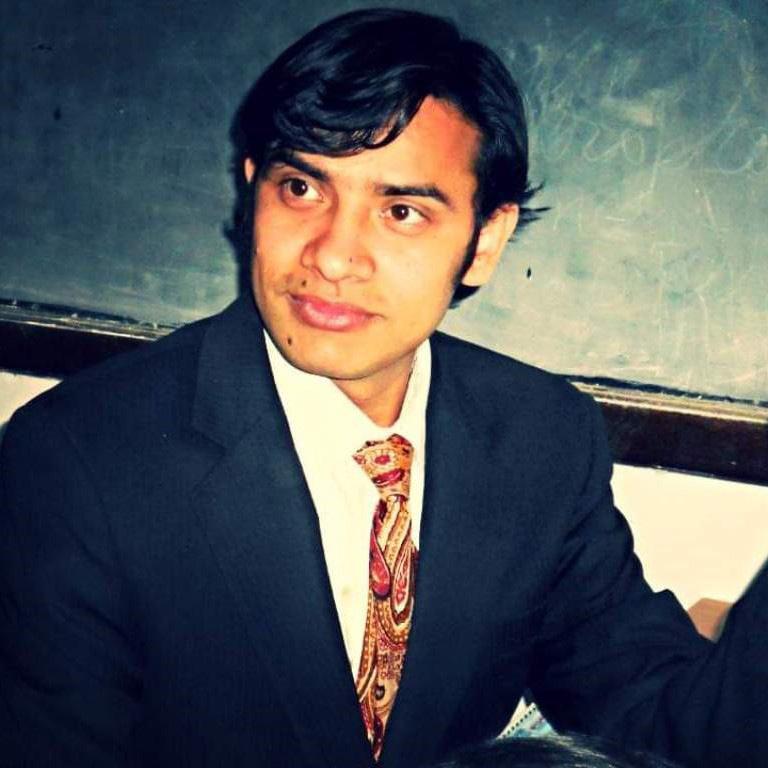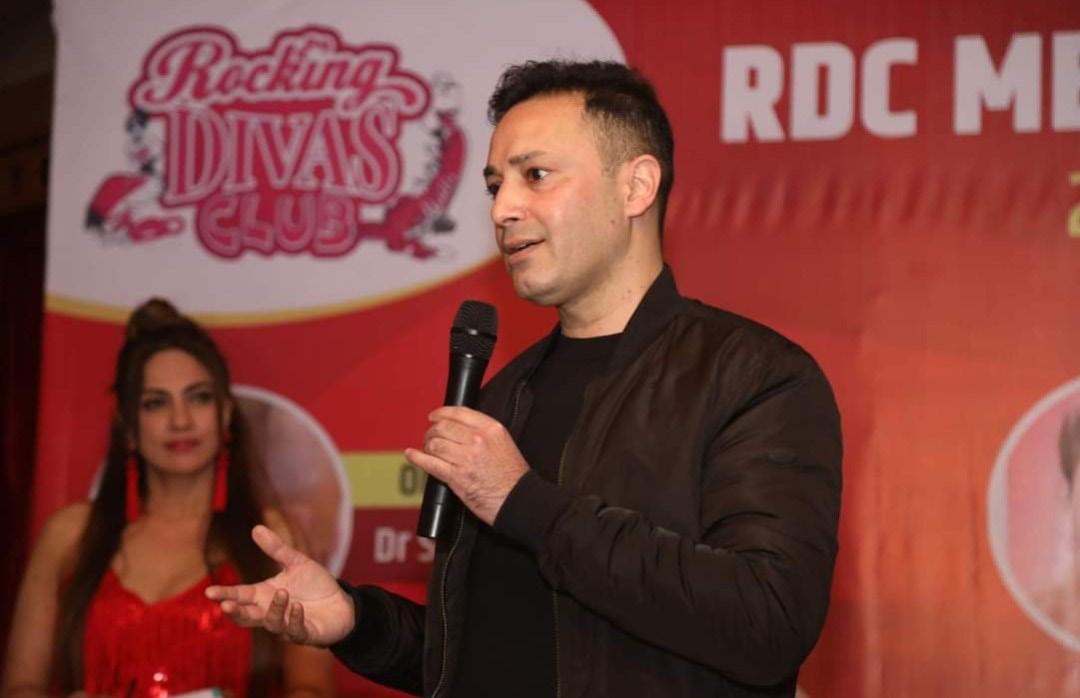
18 minute read
Issue 3 | June - July 2022
CONTENTS
Founder & Director Desk 4 - 5
Advertisement

A Mother’s Failure Roebain Christians 18
Poems
I am chaos and beauty Roebain Christians - 15
A Banjarin Jyotirmaya Thakur - 25

Feelings of Butterfly Lokanath Rath - 29
She came into my life Yogesh Raichandani - 34
Martial Rape Adv. Mohini Priya 12 - 15 Mission Samadhan Adv. Renu D. Singh 16 - 17



COVER STORY - Mr. Jitesh Khanna (6 - 11)

The Social Dilemma K Sudheendra Nayak - 19 Feminism or Womanism Jyotirmaya Thakur 22 - 25

Karna, The Enigma Dr. Lokesh Gupta 20 - 21 Fashion Cloths Arya Pattnaik 26 - 28 Kashmir Stories M.K. Gautam Photographer - 30


Dear Friends, Warm Greetings to you! 10th June, 2022
The term ‘Litro Fashionate’ encompasses more than just knowledge and knowing. It is a harmonious blend of Literature, Arts, Sports, Stories, Emotions, Attitudes, Creativity, Fashion, Nature and life itself! And in the world we have built today, the one who is adept in all these areas is the one who succeeds.
I have always believed that, “Excellence is never an accident; it’s always the result of high intention, sincere efforts, intelligent direction and skilful execution. ” These words of wisdom best describe the present state of the Litro Fashionate.
One of our major achievements of Anuragyam in past year have been our Kalayatra Magazine (Hindi Langauge) which coveres Indian Art, Literature & Culture. We recognize the importance of the magazine initiatives entrusted on us by our readers and we need to ensure that we take special care to meet and exceed their objectives.

Er. Sachin Chaturvedi Founder, Anuragyam



When we pick up an emotion, it is like a piece of puzzle significant in its own special way, pegging holes, completing, fixing surfacing in a prominent role. Let us not allow anyone to erode our sanctity of thoughts and sanity of mind. Realise the super power that we are nurturing our tenderness, be our tremendous self, let go off all pain and help to heal within. Disallowing any negativity to seep in to our system lingering in our heart bringing down to slime.
We are the Heroines of our dreams, let us for once own it like a Diva, the world is our stage, creating our own Divine aura proclaiming each nano second of our existence making it worthwhile. Remembering that we are loved, being cared for, understood, cherished and most desirable.
We can breathe Life into anyone with an endearing smile with each passing moment. Be that sunshine, that light drizzle, the after showers, the serenity of dusk, the quietude of the night, the promise of a new dawn, the consoling warm winter sun, be your own inspiration.
When we are the whole galaxy why settle for anything less. The nuclei of everything that surrounds us intensifying, magnifying amplifying in our inate elegance, irresistible charm, winsome beauty, larger than life attitude.
Be the emotion that one wants to be attached to, unchained melodies one would listen to in a loop. Be the unforgettable warmth of the first hug, the yearning of the first date, the coyness of the maiden kiss. Believing in ourselves... being everything beautiful that we wish to be, dreaming beyond ponder and yonder.. be the pure that we are, sublime resplendent!

Nidhi Bansal Director, Litro Fashionate Magazine

Face of the Youth
Mr. Jitesh Khanna

Founder & CEO Saiprastha Promoters Pvt. Ltd. Multi Awardee - Entrepreneur, Writer, Artist, Social Activist, Philanthropist, Author | Motivator | Keynote Speaker
An Entrepreneur with 20 years in a Leadership role in Business. Experienced in all aspects of real estate planning, development and trading, Renewable Energy (Solar Farms). An Effective communicator and a motivator, who identifies and leverage assets in teammates to reach organizational goals.

Mr. Jitesh Khanna has a passion to write & started writing at a very young age as a result now have now become a poet/writer and social media influencer along with an avid blogger. Mr. Jitesh Khanna is a visionary entrepreneur and has a dynamic personality that makes him a distinguished individual.
Being the entrepreneur himself he is an exceptionally talented professional who has over 20+ years of industrial experience in liaising with both individual and corporate clients. He is an entrepreneur whose life revolves Mr. Jitesh Khanna has dedicated his life to philanthropy.

Face of the Youth
He was interviewed by one of the renowned Educational Media Channel, Edu TV where I shared by thoughts for the youth – “how to persevere during pandemic, how to succeed in crisis and never lose hope”: Shared his views at United Nations listed event, a conclave celebrating International Youth Day. International participants also joined in from USA, England, Singapore, Zimbabwe, Nigeria, Srilanka, Nepal, Afghanistan.
A talk show with Planotech Media House, where I shared my journey as an entrepreneur, shared tips with budding entrepreneurs. We had a detailed Q&A and a surprise fun rapid fire round in the end. Holds an Honorary Position as “Brand Ambassador of Delhi” with Igniting Dreams of Young Minds Foundation. He was featured on CNBC Awaaz Entrepreneur programme, was a chief guest at the inauguration of a new CSR funded facility in a government school.



LIFESTYLE
Young achiever Jitesh Khanna shares his success mantra of life and profession
Mr. Jitesh Khanna is a relentless optmist and believes there are no failures in life, only feedback. Also, he abides by the theory – reinvent yourself and keep shifting the goalposts. Being a man of many talents, Mr. Khanna has figured in the list of Young Achievers and is well-known in the realty circles for his innovative & ingenious ways of leading businesses and mentoring his associates.
A hard taskmaster in business and a compassionate human being – is what aptly describes him.
Mr. Jitesh remains committed to professional targets but also strives hard to add value to society by involving people in social development programms. He has featured in CNBC Awaaz Entrepreneur programem as a chief guest.
Mr. Jitesh Khanna is a leading real estate entrepreneur with over 20 years of experience and offers not just home solutions but also life skills


Mr. Jitesh Khanna is heavenly influenced and inspired by Ancient Mystics and Poets like Jalaluddin Rumi, Kabir, Bulleh Shah, Nizar Qabbani and above all by the great Pablo Neruda, poetry he believes is the expression of our humanity. But the greatest influence in my life is my mentor.
His life is fully loaded with achievements, accolades, honors and world-class experiences. For the last 15+ years of his practice, enriched with global vision, Mr. Jitesh looks forward to creating many more innovations that reflect sophistication infused with vitality. He symbolizes the spirit of outstanding achievements & excellence despite his hardships & challenges.


Life lessons by Mr. Jitesh Khanna
‘New-age’ entrepreneur by profession, Mr. Jitesh Khanna is a multi-faceted personality with varied interests. He is a writer, Artist, Educationist, a distinguished Speaker and also a philanthropist.
In the real estate business, he has exploited the notion of solar farms to promote green energy. He is also the recipient of Excellence Award 2020 in Business Excellence category.
Mr. Jitesh Khanna, says that one should always explore to develop the ‘best version of himself/herself’.
According to him, the best way of exploring one’s true potential is by – reinventing themselves and keep pushing the boundaries.




AWARDS
• Awarded for Outstanding Contribution in Education by Education
Excellence Conclave by Ekk Updesh • Has been designated as a Chief
Mentor with SPAA India • Holds an Honorary Position as
Igniting Dreams of Young Minds
Foundation. • Has won the Philanthropist Award with Shashakt • HE is a Bonafide Speaker with
GRKQSF • Holds a Professional Membership with Edukosunite • Has been recently awarded as “The
REAL SUPER HERO 2020” by FSIA 2020, for my philanthropist work during Covid 19 Pandemic. • Awardee of GURUPNISHAD SAM-
MAN by Charles Walter’s Society for
Innovation & Research



Mr. Jitesh Khanna says, “As we progress, we all to see change in lives. But, it’s mostly derived/dependent on others. If we learn to find that change within ourselves, it will be the game changer achievement.”
Sharing his insights from Buddhist ideology (that he follows), he says that real beauty comes from inner well-being."If we stay cheerful and are at peace inside, we shall stay happy otherwise all that will reflect on body,” he says. Quoting a famous poet, he urges people to stay positive and live in the present.
“When you live in past, you live in grief; When you live in future, you live in anxiety; When you live in present, you have a lot of peace,” says Jitesh Khanna. He always takes a foot forward for activities to help mankind. He is an active part of all the major program for the betterment for humanity as believes in adding value to society by involving in many social programs and youth development activities.
He has been Imparting knowledge, mentoring sessions and he is working towards this by providing entrepreneurship Programs to the youth and professionals.



of
Litro-Fashionate Magazine Justifying Criminalisation

Throughout the history of most societies, it has been acceptable for men to force their wives to have intercourse against their will. The traditional definition of rape in most countries was ‘sexual intercourse with a female not his wife without her consent’. This provided the husband with an exemption from prosecution for raping their wives—“a license to rape”.

The foundation of this exemption can be traced back to statements made by Sir Matthew Hale, Chief Justice in 17th Century England. Lord Hale wrote that : ‘the husband cannot be guilty of rape committed by himself upon his lawful wife, for by their mutual consent and contract, the wife hath given up herself this kind unto her husband which she cannot retract.’
The tenets of the marital rape exemption were based on the notion of ‘irrevocable implied consent’. As per this notion, once a woman is married to a man, there is believed to be implied consent to sexual intercourse, which is irrevocable in nature. exemption were the common law doctrines that a woman was the property of her husband and that the legal existence of the woman was ‘incorporated and consolidated into that of a husband.’
PREVIOUS JURISPRUDENCE
In the case of State of Maharashtra v. Madhkar Narayan , the Supreme Court ruled that every woman has the right to her sexual privacy, and that no one has the authority to violate such private at any time.
The Supreme Court, in the landmark decision of Vishakha v. State of Rajasthan , extended this right of privacy to working situations as well. In a similar vein, we may deduce that even inside a marriage, there is a right to privacy when it comes to sexual relationships.
The Kerala High Court held in Sree Kumar vs. Pearly Karun that the offence under Section 376A of the IPC will not be prosecuted because the spouse is not living independently from her husband under a declaration of partition or any custom or use, regardless of the possibility that
she is subjected to sex by her better half without her consent. In this case, the spouse was forced to have sex against her will by her husband when she went to live with him for two days as part of a settlement of separation proceedings between the two parties. As a result, the spouse was found not guilty of raping his wife, despite the fact that he had done so.
The judiciary appears to have completely abandoned the notion that rape inside marriage is unfeasible or that a woman’s shame from assault may be cleansed by marrying the perpetrator.
The Protection of Women from Domestic Violence Act of 2005 was approved in 2005, and while it did not make marital rape a felony, it did make it a type of domestic violence. If a woman has been the victim of marital rape, she can go to court and obtain judicial separation from her husband under this Act. However, the same does not completely insulate women from the effects of crime.
EXISTENT LEGAL POSITION

Sexual intercourse by the husband is not rape when the lady is married and not less than fifteen years old, according to Indian law, exemption to section 375, IPC. Prior to the 2013 change to the IPC, when the wife was between the ages of 12 and 15, the punishment was dramatically lowered, and may have been up to two years in prison or a fine. Only when the wife was under the age of 12 was it considered rape.
The 2013 amendment removed this phrase, but did not acknowledge the idea of marital rape, opting to stick with the previous legal framework. It is important to note that the Justice Verma Committee Report suggested that the IPC’s marital rape exception be repealed. The acceptance of the notion of primacy and supremacy of the husband’s right over that of the wife, even though she is much below the legal age of marriage, is a unique feature of Indian law. The legal implication of not recognising forceful intercourse with a minor wife (between the ages of 15 and 18) as rape is that similar intercourse with an adult wife is not considered marital rape at all.
The sole case in which the law intervenes is in the case of legally separated spouses who are not living together under section 376-B of the Indian Penal Code, and the great majority of marital rape falls beyond the scope of the law. In the Haree Mohan Mythee case, the court concluded that a husband does not have an unfettered right to enjoy his wife’s person without consideration for her safety. According to this ruling, the only time the law recognises an infringement on a husband’s fundamental right to sexual intercourse is when it becomes exceedingly harmful to the woman owing to bodily disease or other serious repercussions such as death.
As a result, no attempt has been made under Indian law to provide even a semblance of protection to a married woman’s right to bodily or sexual autonomy.

In the current situation, there is little chance for future reforms in terms of the acknowledgment of marital rape of adult women, and even minor wives between the ages of 15 and 18 are dealt with significantly less severity.
Under the 156th Law Commission Report, the Commission indicated its unwillingness to raise the age of wife in Exception to S-375 IPC from 15 to 18 years, without giving any specific reasons. The Supreme Court has evaluated the extent and feasibility of exception 2 to section 375 IPC in a writ case brought in the public interest by an organisation called Independent Thought. The court was asked to assess whether a husband may be charged with marital rape if he had sexual contact with his wife when she is between the ages of 15 and 18.
This is a major Supreme Court ruling, in which the court rules - ‘Exception 2 to s-375 of the Indian Penal Code answers this in negative, but in our opinion sexual intercourse with a a girl below 18 years of age is rape regardless of whether she is married or not. The exception carved out in the IPC creates an unnecessary and artificial distinction between a married girl child and an unmar-

ried girl child and has no rational nexus with any unclear objective sought to be achieved. The artificial distinction is arbitrary and discriminatory and definitely not in the best interest of the girl child’
The artificial distinction is also opposed to the idea and ethos of articles 15(3) and 21 of the Constitution, as well as international treaties, according to the court. It clearly violates the girl child’s physical integrity and reproductive choices.
The petitioner society pointed out that anyone who has sexual intercourse with a girl child under the age of 18 will be liable for statutory rape, even if the minor girl consents, and that the situation is even more absurd when the offender is her husband, because the marital exemption applies in such cases, and the husband is completely exempt from punishment. The right of such a female child to bodily integrity and to refuse sexual contact with her spouse is stripped away by her marriage. She does not become emotionally or physically fit for such judgments just because she is married.
The Independent Thought decision is an excellent example of judicial activism and artistry in providing a socially desirable meaning to a clause in the law that incorporates a dead notion. However, it is rather sad to observe that the Supreme Court has indicated unequivocally on several times that it would not comment on marital rape in general if the wife’s age is 18 or more than 18 years.
MARITAL RAPE: A LOOPHOLE IN RAPE LAWS
Few questions such as ‘Does the marriage registration certificate terminate the importance of consent?’, or ‘Does the title of a ‘husband’ allow the man or give him the right to force himself upon his wife, even if she asks him not to?’ pop up whenever the concept of marital rape strikes up in a conversation. If, as a nation, India, has made such strict laws regarding rape, then why is it still one of the 36 nations that haven’t yet criminalised marital rape? A country where marriage is given so much priority, and where it is considered as one of the most pious relation that a man and a woman share, then how does it give the man in the relationship the right to humiliate his wife physically, mentally and emotionally.

If we go as per the statistics then according to the Indian government’s latest National Family Health Survey, about 30% Indian women aged 18-49 reported having experienced spousal violence. In terms of sexual violence, the average Indian woman is 17 times more likely to face sexual violence from her husband than from anyone else, according to the survey of 724,115 women.
Section 375 of the IPC is the only legal provision that within its language differentiates between two people on the basis of their marital status. Isn’t this a violation of Article 14 of the Constitution of India? Are women not allowed to feel safe just because they agreed to share a marital relationship with someone? Are pre existing patriarchal norms predominant over the best interests of an individual?
RECENT DEVELOPMENTS
A recent PIL filed in the Delhi High Court has sparked a judicial discussion over the legitimacy of section 375, IPC, exception 2 - the marital rape exemption provision. Hearing the PIL challenging the criminal code clause, a division bench of acting Chief Justice Gita Mittal and C. Hari Shankar J stated that “marital rape is a severe issue that has notoriously become a part of the society.”
The RTI Foundation filed the PIL in 2015, and other people and institutions18 have also moved the High Court of Delhi to challenge the exemption under sections 375 and 376B of the Indian Penal Code, claiming that it criminalises marital rape. The exception is unlawful, according to the PIL, and infringes married women’s rights under Articles 14, 15, 19, and 21 of the Constitution.
One of the petitioners has challenged the provisions of the Cr PC, which are to be read in conjunction with section 376 IPC, on the basis that they mandate discriminatory procedure and




